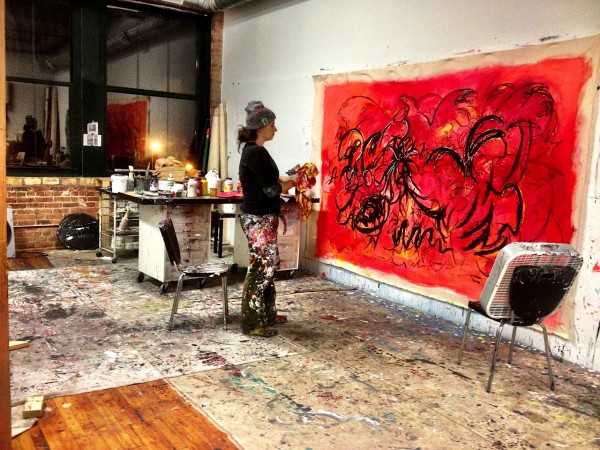Massachusetts is known as a place of innovation and achievement in fields such as technology, medicine and manufacturing. It is also home to a vibrant community of artists practicing a broad spectrum of creative disciplines. But these painters, sculptors, performance artists and countless other less-easily-categorized creatives, face significant challenges when seeking suitable work and living spaces.
Organizations like the Worcester Artists Group, the Fitchburg Art Museum (FAM) and Twin Cities Community Development Center are seeking to change that with plans already underway to develop several new artist spaces throughout Worcester and Fitchburg.

Central Mass. is in need of affordable spaces where artists can live and work.
For many working artists in central Mass., the cost of maintaining a separate residence and workspace can be well beyond their means, and some are forced to resort to questionable practices such as illegally living in a space not zoned as a residential area. Others may attempt to use hazardous materials or techniques at home, putting themselves and neighbors at serious risk.
Increasing the number of venues where artists, already on tight budgets, can live and work affordably would free up time and resources they now spend commuting to larger cities. The savings would allow artists to do more to benefit and enrich the community around them. The proposed developments will not only encourage the arts communities in central MA to flourish, but would also invigorate the local economy as their occupants live, work, shop and eat locally.
In Fitchburg, a plan to convert three buildings near the FAM is under review as community leaders assess the impact of the proposed 55 apartments and determine the best use of the 94,000 square feet of available space.
Worcester will also undertake similar deliberations as a part of broader downtown revitalization plans. Boasting several arts organizations and the world-renowned Worcester Art Museum, Worcester is considered a highly desirable location for artists. The city will be collaborating with organizers and potential residents to assist with development requests and zoning requirements.
The spaces up for consideration are not limited to the most obvious options. Worcester’s cultural development officer, Erin Williams, explained, “We need to think, not just about old mill buildings anymore, but empty supermarkets, empty church buildings that are not being used by their community, but vacant buildings in all their forms.”




